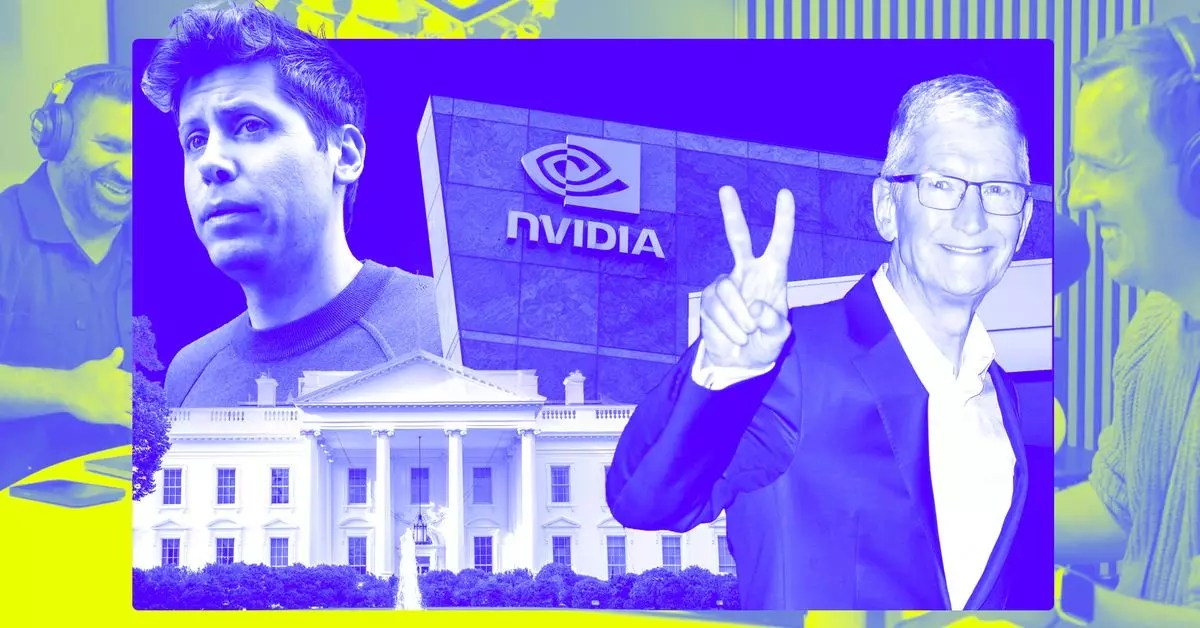As we step into an era increasingly dictated by rapid technological advancement, the curiosity about what the next year—or even the next decade—holds is undeniable. An engaging conversation on The Vergecast, led by tech journalists, has taken on the formidable task of forecasting notable events and developments within the tech landscape for 2025. With their witty banter and knowledgeable insights, they tackle an array of predictions, providing a multifaceted view of the future of the tech giant industry. However, the exercise also serves to analyze the patterns, trends, and possible outcomes of these projections.
The lingering presence of the same CEOs at the helm of Big Tech is a noteworthy consideration. Predictions from the podcast suggested that Tim Cook would still be leading Apple, along with the other heads of major tech firms maintaining their positions. This stability, on the surface, could be perceived as a sign of continuity, yet it belies deeper questions about innovation and adaptability within these corporations. If the leaders in technology are not changing, can we expect fundamentally different approaches to problem-solving or new groundbreaking products? If history is any guide, the most transformative eras in tech have often been accompanied by new leadership propelling fresh philosophies and strategies.
In addition, speculation around Nvidia potentially becoming the most valuable company in the world prompts an intense examination of the direction of artificial intelligence (AI) and graphics processing. The duality of skepticism and optimism expressed by the hosts about Nvidia leads us to consider not just the market’s valuation, but also the broader implications of its technology on society. Are we prepared for a future where a single company wields so much influence over the development and deployment of cutting-edge AI technology?
A significant topic of discussion centered around the mainstream acceptance of folding phones, alongside the anticipated release of the Pixel 10 and the Nintendo Switch. These technological innovations highlight an essential aspect of consumer behavior in tech adoption. Despite the hosts’ broadly skeptical views of folding phones’ acceptance, the emergence of this format speaks volumes about consumer desires for innovation and portability. In this context, it demands a closer look at what influences successful tech acquisitions versus the duds. It raises a vital question: Are market intricacies and consumer preferences shifting rapidly enough to keep pace with the continuous rollercoaster of innovation, especially when witnessed in a competitive pricing environment?
Further illustrating this point is the mention of the Nintendo Switch. With dramatic shifts in the gaming landscape, especially concerning the rise and fall of previous consoles, it’s imperative to analyze what makes or breaks a gaming product in the current market. Do gamers gravitate toward novelty for novelty’s sake, or do they prioritize functionality and immersive experience? The varied responses to the predictions of these devices showcase the disparate perspectives on innovation and market potential.
Above all, one of the most critical predictions made concerned a potential AI scandal perceived to disrupt societal trust in technology. With the growing dependency on artificial intelligence, society stands at a precipice—a divergence between unfettered optimism about AI’s capabilities and the ethical ramifications of its misuse. The likelihood of such a scandal is not only plausible but necessary to consider. With historic precedents showcasing missteps with power—whether in data privacy breaches or algorithmic biases—the potential pitfalls are perilously real. Deploying AI responsibly will require diligent governance and transparency from tech companies, whose foundations hinge on consumer trust.
The discussion regarding the acquisition of platforms such as Snap also underscores the constant flux of social media dynamics. If any entity were to acquire Snap, it would be you-tube platforms and its resultant influence on the tech landscape and cultural narrative. The hosts expressed their reservations, but what does the market trend really indicate? Will we witness converging social applications producing larger entities, or will smaller platforms maintain individuality in the face of monolithic companies?
As the exploration of upcoming tech predictions unfolds, it’s essential to remain analytical and engage in a dialogue about the possible realities versus lofty expectations. While each host presents compelling points regarding the viability of their tech predictions, it’s crucial to consider the intersection of technology with societal values and consumer behavior. Navigating this landscape will not just require watching who’s still in charge or what’s making headlines, but actively challenging the frameworks that define our digital reality. The nearly dystopian image of a tech-reliant future forms an intriguing backdrop, urging us to ask: What kind of technology do we truly want in our lives? As we approach 2025, the coming year promises to be a captivating chapter in the ongoing saga of innovation and societal interaction.


Leave a Reply